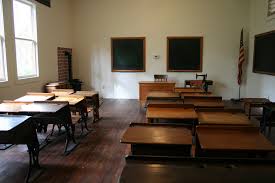06.11.15Know Excuses: A Guest Post by Rue Ratray
 Rue Ratray, of UpAcademy Oliver, a district turnaround school in Lawrence, MA is one of the best–and most reflective–teachers I know. He’s been writing a series of guest posts (you can read his others here and here) about teaching. He shared his latest with me this week–it’s a reflection on a phrase neither of us is especially keen on: “No Excuses.”
Rue Ratray, of UpAcademy Oliver, a district turnaround school in Lawrence, MA is one of the best–and most reflective–teachers I know. He’s been writing a series of guest posts (you can read his others here and here) about teaching. He shared his latest with me this week–it’s a reflection on a phrase neither of us is especially keen on: “No Excuses.”
For most of the people reading this, the following statement is true. It’s an idea I think about often, and it’s what keeps me going when times are hard. Here it is.
The work you do on a day-to-day basis is an attempt to do something that has never been done before in history.
A bit more explanation. I’d guess a good majority of the people reading this work in schools that would be labeled “No Excuses”. I have a bit of trouble with that label, but I’ll get to that in a moment. To me, “No Excuses” schools represent to refute, or prove false, the following two ideas about education in America.
- Everyone gets some sort of education.
- Only some people get a good education, and thusly, access to the chance at a good life.
I see the argument of “No Excuses” schools as…
Everyone gets access to a good education and the chance for a good life, because access to a good education is a basic human right.
I’m willing to bet you agree with this. This is why your job is so hard. What you are doing is incredibly important and difficult. And not for nothing, this means that you wake up every day in the middle of history. Pretty cool, huh?

Our school is located in a very old building, on the third floor of the old Lawrence High School. It was built more than a hundred years ago. The classrooms have these beautiful vaulted ceilings and there is an echo in the space that always feels a little incomplete without the slight cadence and clatter of chalk on slate. Still, it’s a wonderful place to work. Sometimes I walk around and wonder about all of the lessons that have been taught in the buildings, all of the thousands of teachers. What would I think of them? What would they think of us?
I was watching this fantastic documentary about the chef Magnus Nilsson. In it, he talks about how cooking is different than art. He argues that you can look at a painting or a statue and figure out how the painter or sculptor got there. But with cooking, there are only these traces, and you have to keep the recipes alive or they die. I think teaching is a lot like this. We need to keep the flame alive.
I think about this often. The work we do is so hard, and sometimes it feels like the night will never end. But we know that dawn will always come. So our work is to believe. And to keep the fire alive.
This is why I think TLAC resonated with so many people. It’s an attempt to capture the “how” of a group of very determined people who are trying to change the world. Not, “Here are some great ideas about lessons!” or “This is how you work with challenging students”, but “There are people who a breaking a system of inequality that persisted for centuries. And they’re really doing it. And this is how. This is their torch and their path to the light.” To me, that’s what the book really is.
But what about frustration? That’s what all of this is has been about, right? True. Here’s another idea:
If we are truly going to give a good education to all students, and if we know that part of being educated is being frustrated, then we are going to be generating unprecedented levels of frustration, so teachers are going to need to figure out how to know and manage that frustration. They can’t just ignore it.
That’s another secret that I think is buried in TLAC. The teachers in the book don’t just know their stuff and push their kids and work incredibly hard. They know that “No Excuses” starts with them.
Because that’s something very true that I think often gets forgotten. We say “No Excuses” all day long to kids, but what about us? If kids don’t to work, that’s on us. If kids give up in the middle of a lesson, that’s on us. If kids are frustrated and won’t work, it is our responsibility to understand that and manage that. Just saying, “No excuses! Work harder!” isn’t good enough. But it happens all the time.
This is why I have a problem with the term “No Excuses”. It doesn’t ask enough of us. But I try my best to be solutions oriented, so I have a suggestion. Maybe it’s time to recognize that the very best teachers aren’t just No Excuses. They Know Excuses. They don’t accept them. But they know them and manage them. And they don’t ignore them. Maybe this is the difference between good and great. Maybe this is how we keep the fire alive.
